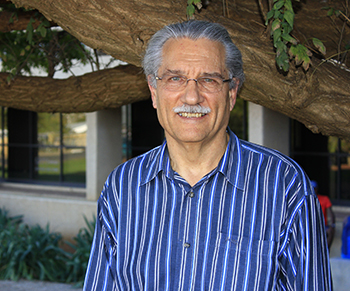Latest News Archive
Please select Category, Year, and then Month to display items
12 October 2020
|
Story Dr Cindé Greyling
|
Photo Supplied
 Exercise and nutrition can work wonders for your mental health – you don’t even have to ‘feel like’ or ‘enjoy’ moving around and eating well for it to work – it does its thing anyway.
Exercise and nutrition can work wonders for your mental health – you don’t even have to ‘feel like’ or ‘enjoy’ moving around and eating well for it to work – it does its thing anyway.
Nowadays, people talk about mental health like it is the common cold – which is good! But do you know what it really means? Being mentally healthy does not only refer to the absence of a mental illness but includes your emotional and social well-being. One would almost want to add physical well-being too, since a healthy body does indeed support a healthy mind. However, since so many people consider themselves ‘mental health experts’, some myths have been sold as truths.
Myth #1 – You are doomed.
Nope. Never. You are never doomed. There is always help. Mental-health therapies range from self-help, talk therapy, medication, to hospitalisation in some cases. Somewhere on this spectrum of treatments, there will be something that works for you. But you must be willing to get the help and do the work. For starters, exercise and nutrition can work wonders – you do not even have to ‘feel like’ or ‘enjoy’ moving around and eating well for it to work – it does its thing anyway.
Myth #2 – It won’t affect you.
It may. Research suggests that one in five people may suffer from a mental illness at some point in their lives. Being well now does not mean that it will stay that way. Biological and environmental factors both impact your mental health. Hopefully not, but at some point, you may experience an event that affects your mental health.
To remain integrated in a community is always beneficial
for anyone suffering from a mental or physical condition.
Myth #3 – Someone struggling with mental health must be left alone.
Hardly! To remain integrated in a community is always beneficial for anyone suffering from a mental or physical condition. You do not need to fix them, but to remain a friend. Continue to invite them, even if they decline. Do not judge, and do not try to understand. Just stay around.
Go and be kind to yourself, and to those around you.
Former UFS Dean awarded SAAWK medal for contribution to Bible translation work
2016-05-09

Prof Hermie van Zyl
Photo: Eugene Seegers
|
Prof Hermie van Zyl, former Dean of the Faculty of Theology at the University of the Free State (UFS), was recently awarded the Ds Pieter van Drimmelen medal by the South African Academy of Science and Arts (SAAWK) for his contribution to Afrikaans Bible translation and other translation work.
Prof Van Zyl was part of the team that published the Interlinear translation of the Bible (New Testament) in Greek and Afrikaans. This translation takes the reader from the original text (Greek), to an almost verbatim version, to a rough translation, and, ultimately, to a more polished, finished translation in the target language of Afrikaans.
Other translations Prof Van Zyl has been involved in include the Afrikaans Bible for the Deaf (published in 2008), the direct translation of the Bible (of which the New Testament and the Psalms have already been published), the New Living Translation, the Parallel New Testament, and the Reference Bible. He is the first lecturer from the Faculty of Theology at the UFS to receive an award from the SAAWK.
“It is a wonderful privilege and an honour and really came out of nowhere,” said Prof Van Zyl. He added that he is grateful that, amongst all the wonderfully talented people at the UFS, he could make a modest contribution. He mentioned that the collegial conversations, seminars, and other discussions in the faculty over the years, were very stimulating. He singled out Prof Jan du Rand and Prof Francois Tolmie (another former Dean of the Faculty and long-time colleague in the department of New Testament Studies) as inspiration.
The official presentation of the medal will take place in the Atterbury Theatre in Pretoria on 29 June 2016.
Prof Van Zyl was employed in the Faculty of Theology at the UFS for 29 years until his retirement in 2013. He is currently a Research Fellow in the Department of New Testament, and still lectures on occasion.